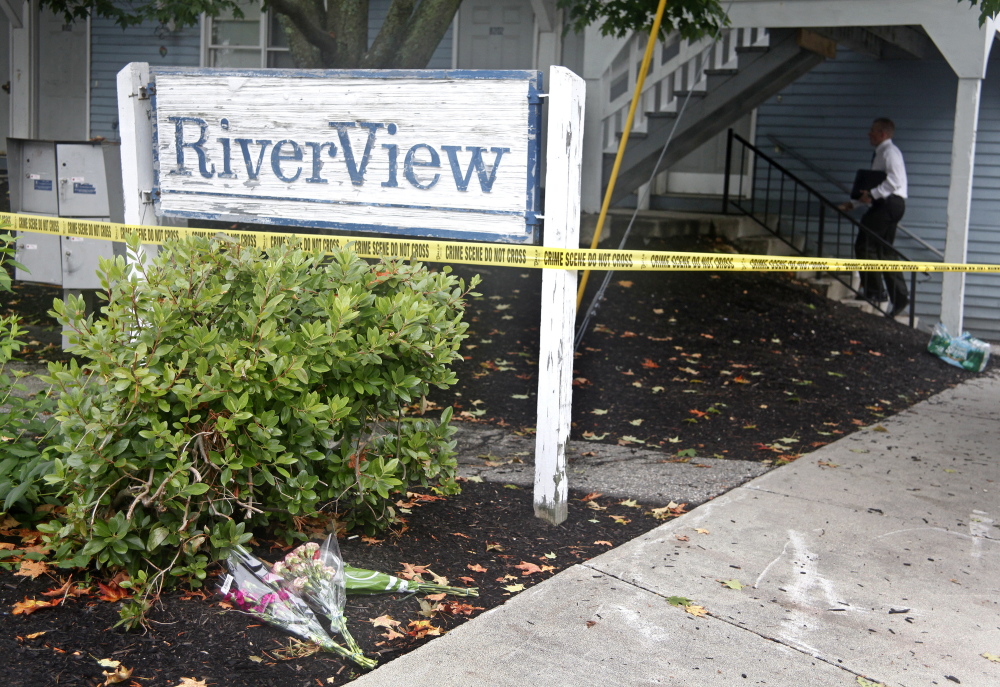This was death on a scale rarely seen in Maine: Joel Smith of Saco apparently killed his wife, Heather, and their three children late Saturday night before fatally shooting himself.
The scale of last weekend’s killings may set them apart. In other ways, though, we’ve seen similar tragedies all too many times. We should educate ourselves about domestic abuse and not only reach out on behalf of the victims but also press for policy changes. Nothing will bring back the Smith family, but the rest of us have a chance to help keep such devastating events from happening again.
Police said they’d never before responded to a report of domestic violence involving the Smiths. Neither Joel nor Heather Smith had a criminal record. And neighbors said they were friendly people who liked to socialize with other residents of their apartment complex.
The lack of previous police involvement and friendly demeanors are not reasons to discount the possibility of abuse in the Smith household. Abusers have the ability to appear likable and charming to outsiders, but present another side to those closest to them. A friend of Heather Smith told police that Joel Smith had threatened suicide in front of his wife.
This is a tactic that’s often used in an abusive relationship to get attention and to persuade the victim to do what their partner wants. Abusers count on victims to keep their secrets and believe — often with justification — that any confidants will be reluctant to interfere in private matters.
Joel and Heather Smith reportedly sought marital counseling, but that can be a venue exploited by abusers to exert control over their partners. In an abusive relationship, couples’ therapy “puts victims of domestic abuse at risk as batterers use information gained during joint counseling against their victims,” the Maine Domestic Violence Homicide Review Panel has warned.
Couples’ therapists, however, can help victims. How? By meeting separately with each partner before agreeing to provide counseling. It’s a chance to ask privately whether there’s been violent or abusive behavior and help the victim decide how to proceed — practices recommended to all mental health counselors in an April Domestic Violence Homicide Review Panel report. (We would go so far as to say that such screenings should be mandated.)
It may be uncomfortable to speak up and take action when you hear or see evidence of abuse in someone else’s relationship. Domestic violence happens in an atmosphere of isolation, however, and it’s only when that isolation is breached that change will take place.
Send questions/comments to the editors.



Success. Please wait for the page to reload. If the page does not reload within 5 seconds, please refresh the page.
Enter your email and password to access comments.
Hi, to comment on stories you must . This profile is in addition to your subscription and website login.
Already have a commenting profile? .
Invalid username/password.
Please check your email to confirm and complete your registration.
Only subscribers are eligible to post comments. Please subscribe or login first for digital access. Here’s why.
Use the form below to reset your password. When you've submitted your account email, we will send an email with a reset code.